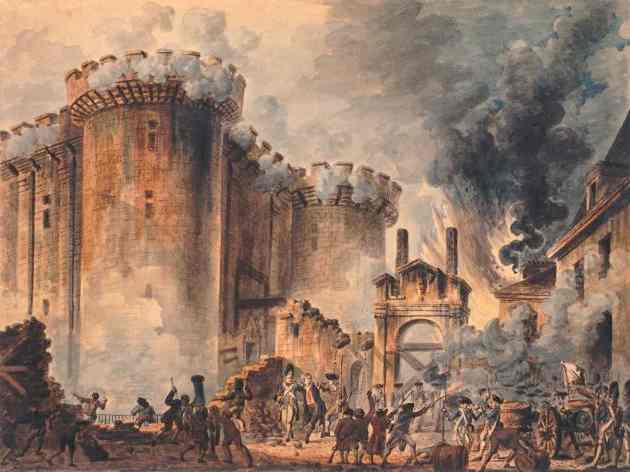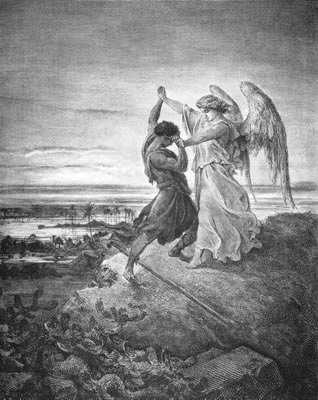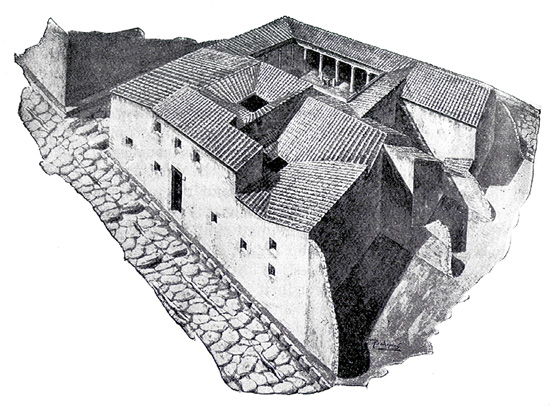
In his recent book, Violence, Slavoj Zizek aims to distinguish between 'subjective' violence - violence as we ordinarily experience it, as a disturbing intrusion into the normal run of things, which only appears against a background of non-violent normality - and two forms of 'objective' violence. These latter forms are invisible, in that they sustain the very appearance of non-violence presupposed by the former.
On the one hand, there is 'symbolic violence', which is not merely that of injurious phrases or expressions, 'hate speech' or 'fighting words', slander or libel, et cetera, but rather, the violence of an imposition of a symbolic order or world of meaning. This involves the disintegration of the existing set of meanings, values, and associations, the traumatic uprooting of subjects from their contextual habituation, as well as the absorbtion of this trauma into the new symbolic order, which renders this violence invisible by depriving evaluation of any standard of measure, any value, that would allow it to register abuse, violation, or injury.
Here we should note that violence, in whatever form, refers to a force that exceeds a threshold of 'abuse', such that the victim has a normally defined range of proper 'use' or 'treatment'. Symbolic violence is invisible precisely insofar as the injury it induces is so severe that it redefines the normal limits of treatment, redistributes the thresholds of abuse, and in the extreme, erases the being that may be treated properly or improperly, replacing it with a new being.
We can see the close relation between 'symbolic violence' and the law-constituting 'mythic violence' of which Benjamin speaks. Whether the realm of meaning or the realm of law, in either case we are dealing with a violence that disposes with the previous order, and in doing so, establishes a new order in its place. This violence cannot coexist with the law thereby established, but must be ejected into an eternally past 'primitivity' or 'mythos'. Within the standards of this new order, it would necessarily appear as the greatest crime, but since this order had not yet come to be, and could only come to be on the condition of this crime, there is no standard of judgement.
Any previous standard of judgement by which we could condemn it is the very casualty of this violence, and this opens a kind of vaccuum between the two orders. Moreover, this vaccuum is not simply an anomic period between two constituted orders, but cleaves the plane of constituted order to/from the groundless, shadowy realm in which constituting power struggles to assert itself, in a time before any constituted time.
The second form of objective violence, according to Zizek, is 'systemic violence', which he defines as the enormously destructive side-effects, the 'collateral damage', of global captialism. Although this system is said to be the epitome of freedom, fairness, democracy, and so on, it nonetheless is sustained by a disavowed underside of orgiastic violence and destitution. Examples of this would be the enormous, and growing, populations living in slums, the emergence of ever-new ethnic civil wars and genocides, the massive death tolls in the Global South attributed to cured or treatable infections that nonetheless go untreated...
The point I would like to make is that there is another form of violence that is not accounted for in Zizek's typology. If the revolutionary aim would be to bring the two forms of objective violence to light, and hence undermine the reactionary form of subjective violence, then the violence of which I speak is the very supression or silencing of this revolutionary activity. This is not as obvious as it may sound. The point is not that there is a systematic effort to discredit or ignore pleas for 'recognition' of objective violence. Rather, as subjects, we are already unable to recognize objective violence; there is no 'enlightened' position one could occupy in this regard. The pained attempts to undermine the constituted order are defeated, failed, in that they must necessarily fail to take place at all.
Every order, of law and language, is born of and sustained by an unaccountable explosition of violence that breaks not only with the previous order, but with power in its 'constituted' form altogether. It is here that we can glimpse the constituting power, which is also revolutionary violence, in that it reveals itself as objective violence. Hence, the revolutionary aim is not simply to denounce such a violence, but to become this violence: both the symbolic violence that dissolves existing law, meaning, and value, and as the product of systemic violence, the collateral damage (the proletariat) of this order turned against the very order that created it. Yet, insofar as this revolutionary break of constituting power becomes a means to the establishment of another constituted order, the revolutionary violence degrades into mythic violence. (Here, we would do well to revisit Deleuze's discussion of the 'eternally New' vs. the 'eternally established' in Difference and Repetition.)
This other kind of violence of which I speak - we might call it 'catastrophic violence' - is hence that which binds constituting power to constituted power, and thereby enlists the revolutionary break in sevice of its own erasure. The radical conclusion here is that this violence is nothing other than revolutionary violence turned back upon itself, ejecting itself into an mythic eternal past. So many attempts to break with the existing order had to fail, that is, failed to happen, in that they ultimately became identical to the establishment and service of this order. The point here would be, not to see what might have happened otherwise, what could have been different, inventing ineffectual 'alternative histories', but rather, to see what had to not happen, what must have failed to occur; to see that which, though impotential, was nonetheless, paradoxically, actual, that which did fail to happen. To make the explosive break of constituting power not an exception to the rule that sustains the rule, but an example of the rule that deactivates the rule - to make visible the inclusion of constituting violence within the realm of law, and insodoing, to step outside that realm - these are imperatives yet to be deciphered.








